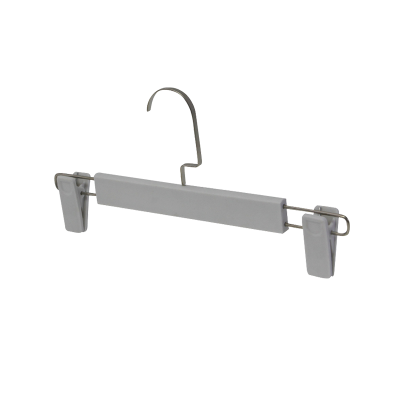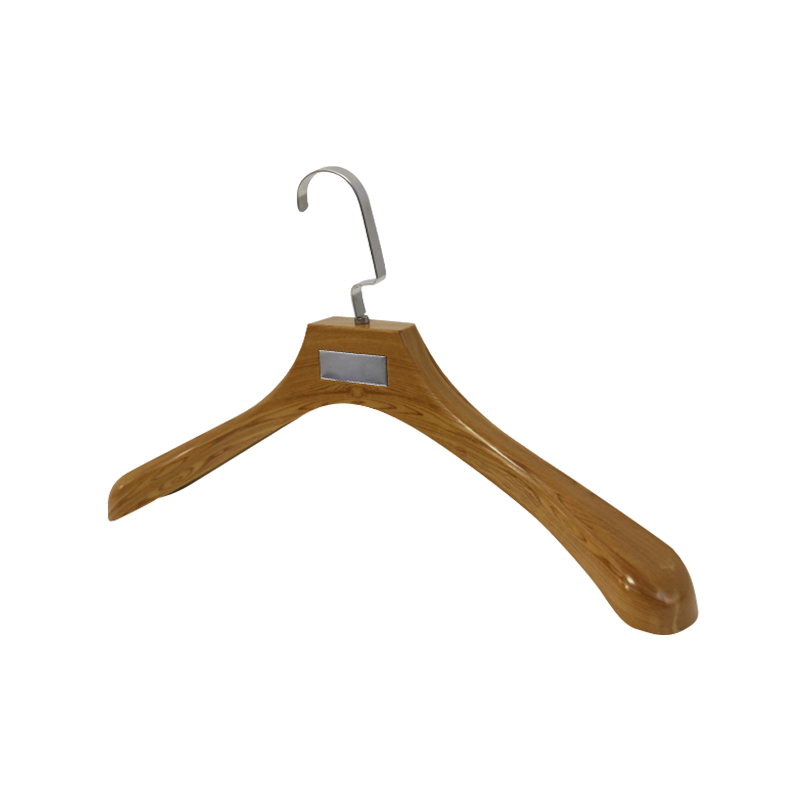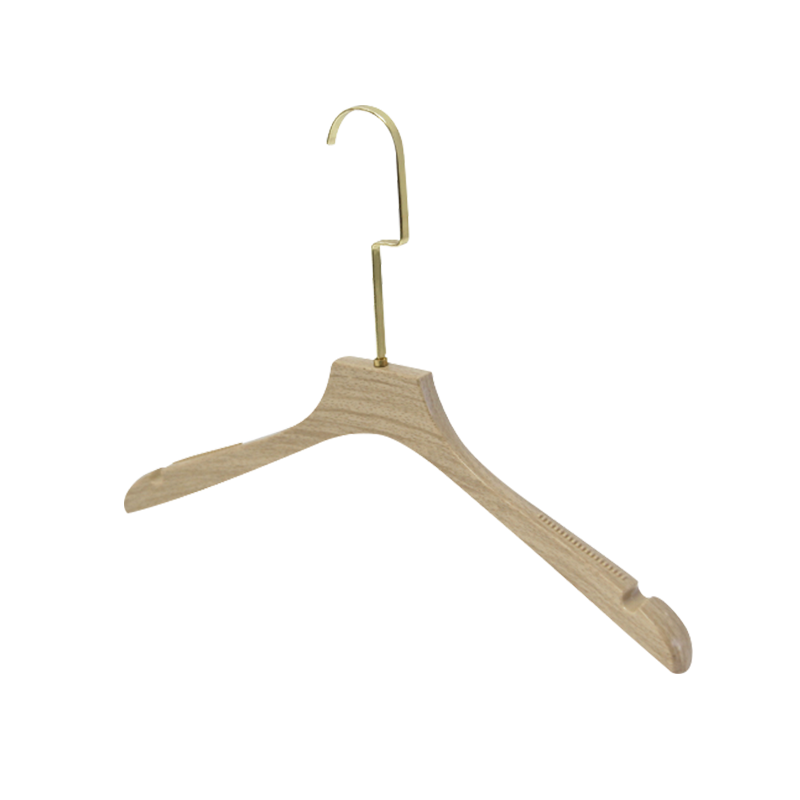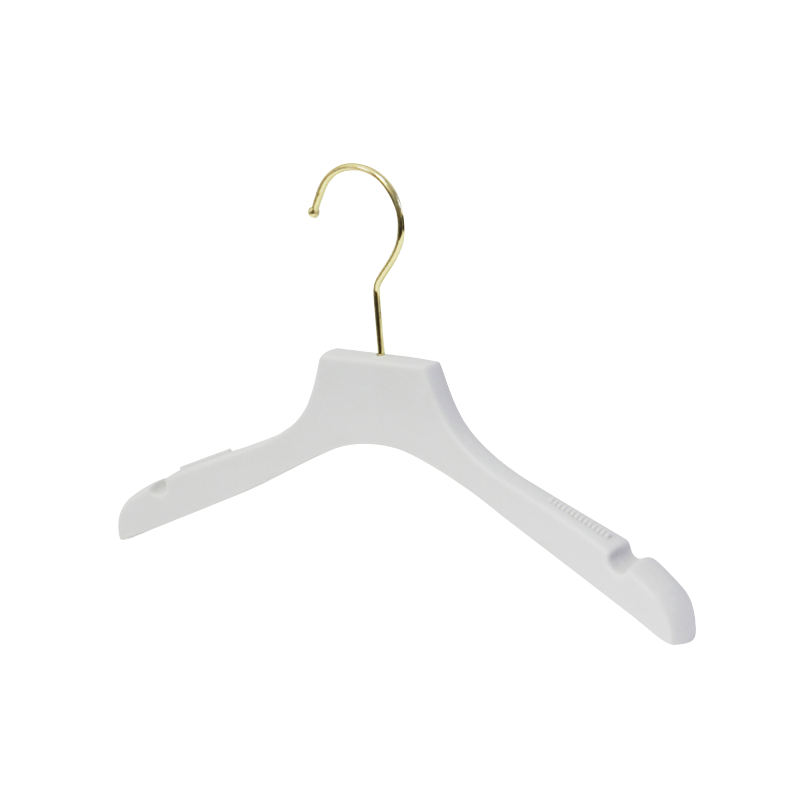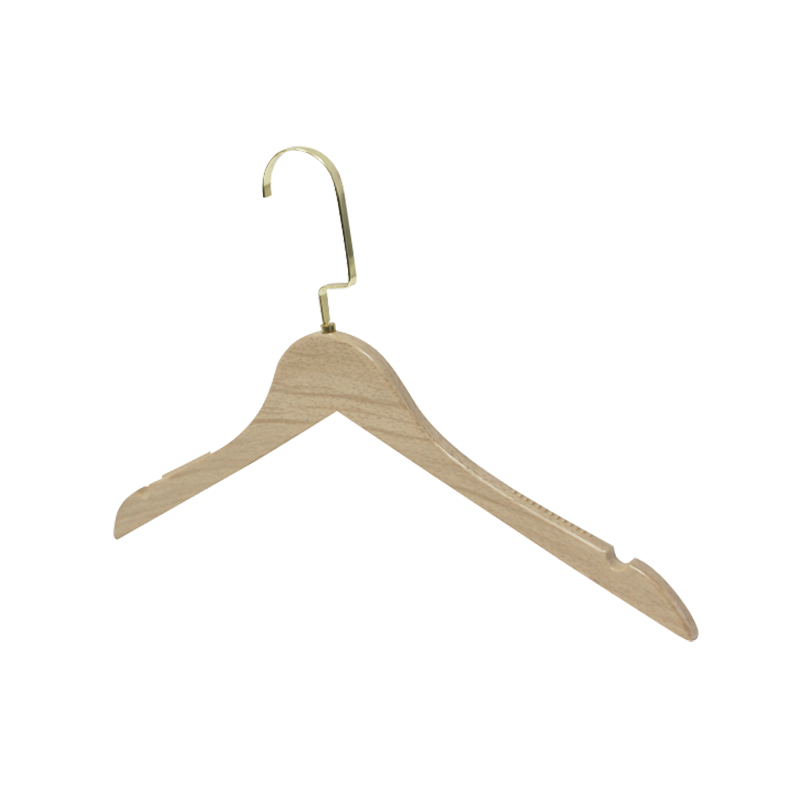Sale China Cheap grey plastic wooden hangers Supplier
In the field of clothing care, the humble hanger often plays a pivotal role. Whether you're storing a freshly ironed shirt or hanging up a delicate dress, the type of hanger you choose can impact the longevity and appearance of your wardrobe. Today, we delve into the realm of grey plastic hangers and grey wooden hangers, comparing their efficacy in protecting clothing from wrinkles and deformation, their environmental impact, and the proper aftercare practices once they've served their purpose.
Grey plastic hangers, ubiquitous in many households, offer a practical and budget-friendly solution for organizing closets. Their sleek, uniform appearance makes them a popular choice for those aiming for a minimalist aesthetic. Made from durable plastic, these grey plastic hangers are designed to support a range of garments, from lightweight tops to heavier coats. Their smooth, non-abrasive surface helps prevent fabric from snagging, a critical factor in maintaining the integrity of delicate materials. However, plastic hangers can sometimes lack the flexibility to conform to the natural shape of some garments, potentially leading to creases over time.
Moreover, the environmental impact of grey plastic hangers cannot be ignored. Plastic production is energy-intensive and often relies on non-renewable resources like petroleum. The disposal of plastic hangers, which are not biodegradable, contributes to landfill accumulation and marine pollution. Microplastics, tiny fragments of plastic that break down over time, can enter the food chain, posing a threat to wildlife and human health.
On the other hand, grey wooden hangers bring a touch of warmth and natural elegance to any wardrobe. Crafted from sustainable materials like pine or bamboo, these grey wooden hangers are not only stylish but also eco-friendly. Wooden hangers' ability to gently grip fabrics without causing undue pressure is a standout feature. This gentle support helps distribute weight evenly, reducing the likelihood of wrinkles and preserving the shape of even the most delicate items. Furthermore, the natural moisture-wicking properties of wood can help regulate humidity, a bonus for maintaining fabric freshness.
When it comes to environmental sustainability, wooden hangers offer a significant advantage over plastic ones. Responsibly sourced wood comes from forests that are managed to ensure biodiversity, soil health, and water quality. These forests act as carbon sinks, absorbing and storing CO2, which helps mitigate climate change. In contrast, plastic production and incineration release greenhouse gases, accelerating global warming.
Post-use, the disposal of these hangers further highlights their differing environmental impacts. Grey plastic hangers, unless recycled properly, can persist in the environment for centuries, posing a long-term threat to ecosystems. Recycling programs aimed at collecting and processing plastic hangers are crucial but often underutilized. Conversely, grey wooden hangers can be composted or repurposed, returning to the earth with minimal harm. For those seeking to minimize waste, wooden hangers offer a more circular lifecycle option.
In addition to their environmental impacts, consumers should consider the broader supply chain implications of their choices. The production of plastic hangers often involves outsourcing to countries with less stringent environmental regulations, leading to pollution and health hazards for local communities. In contrast, wooden hanger production can support local economies and provide livelihoods for forest-dependent communities when sourced ethically.
In conclusion, both grey plastic hangers and grey wooden hangers serve vital roles in maintaining the pristine condition of our wardrobes. Plastic hangers provide an affordable and efficient storage solution. Wooden hangers, with their aesthetic appeal and eco-conscious credentials, offer a more sustainable choice. As consumers increasingly prioritize sustainability, the shift towards natural, reusable materials becomes not just a preference but a necessity.



 Language
Language  English
English 中文简体
中文简体 Español
Español русский
русский
